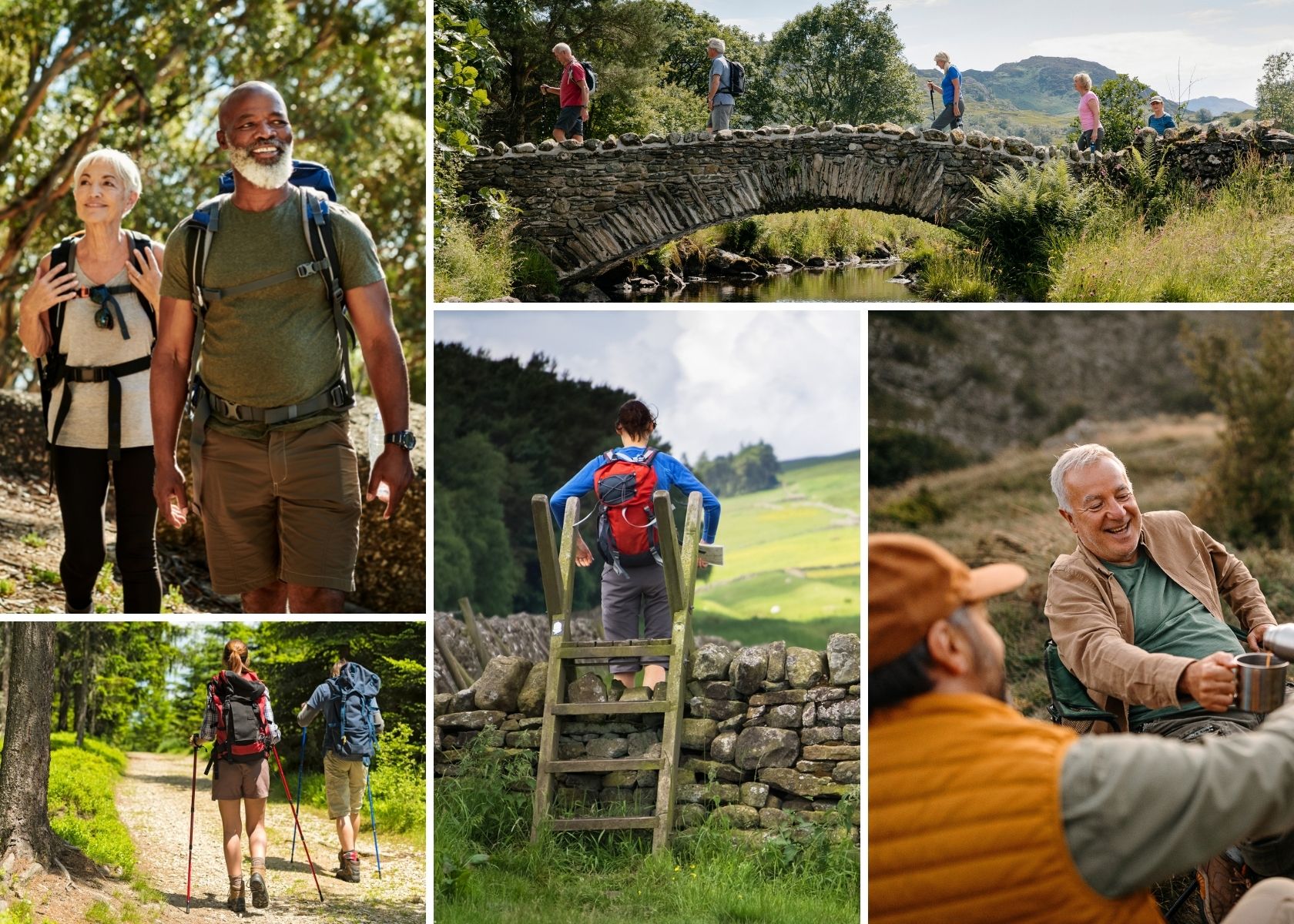Modern life often means spending hours indoors, glued to screens and surrounded by artificial light. This disconnect from nature can contribute to stress, anxiety, and even depression. Nature, on the other hand, offers a restorative environment-reducing stress, boosting mood, and fostering a sense of connection. The simple act of stepping outside, whether for a walk, a run, or a weekend camping trip, can make a significant difference to your mental wellbeing.
1. Reduces Stress Levels
One of the most immediate benefits of being outdoors is a reduction in stress. Rhythmic exercise like walking, especially in natural settings, has a calming effect on the mind and body. It helps lower the stress hormone cortisol, reduces blood pressure, and increases heart rate in a healthy way. Water environments-such as lakes or rivers-are especially soothing, amplifying these effects.
“Going for a walk is one of the best ways of reducing stress levels. Rhythmic exercise has a calming effect and the physiological effects of walking, reducing blood pressure and increasing heart rate, also help to reduce levels of the stress hormone cortisol.”
Chronic stress is linked to increased risk of heart disease, obesity, and other health problems. Taking time for a quiet, reflective walk outdoors helps rebalance your life and build resilience against daily pressures.
2. Boosts Self-Esteem and Confidence
Being outside and engaging in physical activity, even gentle movement, can help you feel better about yourself. Achieving small goals-like reaching the top of a hill or completing a trail-builds confidence and self-worth. Nature doesn’t judge; it provides a space where you can be yourself and appreciate your abilities.
Exposure to green spaces has been shown to improve mood and increase feelings of self-worth, especially when combined with exercise or mindful activities like yoga or meditation.
3. Improves Mood and Fights Depression
Sunlight and fresh air are natural mood boosters. Direct sunlight increases serotonin, a hormone associated with happiness and wellbeing. Studies show that people have higher serotonin levels on sunny days, regardless of temperature, which is essential for fighting depression and anxiety.
Getting outside during daylight hours, even in winter, helps regulate your circadian rhythm and can alleviate symptoms of SAD, a type of depression related to lack of sunlight.
4. Enhances Focus and Creativity
Nature provides a mental break from the demands of modern life. Time spent outdoors can help you concentrate, focus more effectively, and even boost creativity. Sensory overload from urban environments leads to mental fatigue, but natural settings allow your mind to decompress and reset.
Taking a walk outdoors is a proven way to overcome mental blocks and spark creative thinking. Many writers, artists, and business leaders use nature walks to generate new ideas and solutions.
5. Encourages Physical Activity
Being outside naturally encourages movement, whether it’s walking, cycling, hiking, or kayaking. Physical activity is a key component of mental wellbeing, helping to reduce symptoms of depression and anxiety, improve sleep, and boost energy levels.
Even 20–30 minutes a day can make a difference. The more time you spend outside, the more likely you are to engage in regular physical activity, which compounds the mental health benefits.

6. Strengthens Social Connections
Outdoor activities often bring people together, whether it’s a family camping trip, a group hike, or a friendly chat at a campsite. Social interaction is crucial for mental health, helping to fend off loneliness and build a sense of belonging.
Both solo and group outdoor experiences are beneficial, but social connections formed in nature have been shown to enhance happiness and reduce feelings of isolation.
7. Improves Sleep and Restfulness
Exposure to natural light helps regulate your sleep-wake cycle (circadian rhythm), making it easier to fall asleep and wake up refreshed. Regular time outdoors, especially in the morning, can improve sleep quality and duration.
Studies show that people who spend more time outside tend to fall asleep faster and enjoy deeper, more restorative sleep.
The Best Campsites for Mental Wellbeing
If you’re looking for the perfect place to experience the mental health benefits of the outdoors, consider these campsites recommended by Cotswold Outdoor.
| Campsite Name | Location | Highlights |
|---|---|---|
| Cotswold Farm Park | Gloucestershire | Family-friendly, farm animals, scenic walks |
| Cotswold View Caravan & Camping Park | Oxfordshire | Wooded pitches, wildlife, walking trails |
| Bridge Villa Camping & Caravan Park | Oxfordshire | Riverside setting, easy access to Thames Path |
| Briarfields Motel & Touring Park | Cheltenham | Peaceful, adult-only, close to Cheltenham |
| Lincoln Farm Park | Oxfordshire | Award-winning, heated pools, countryside |
| Chipping Norton Camping & Caravanning Club Site | Oxfordshire | Open countryside, great for stargazing |
| Moreton-in-Marsh Caravan Club Site | Gloucestershire | Close to town, easy access to Cotswold Way |
FAQs
Being outdoors exposes you to calming sights and sounds, promotes physical activity, and lowers cortisol levels, all of which help reduce stress.
Yes, regular exposure to green spaces is linked to lower rates of anxiety and depression. Sunlight increases serotonin, while physical activity and social interaction further enhance mood.
Research suggests that even 20–30 minutes a day can have a positive impact, but more time outdoors leads to greater benefits.
Related articles

Let us know you agree to cookies
We use marketing, analytical and functional cookies as well as similar technologies to give you the best experience. Third parties, including social media platforms, often place tracking cookies on our site to show you personalised adverts outside of our website.
We store your cookie preferences for two years and you can edit your preferences via ‘manage cookies’ or through the cookie policy at the bottom of every page. For more information, please see our cookie policy.




